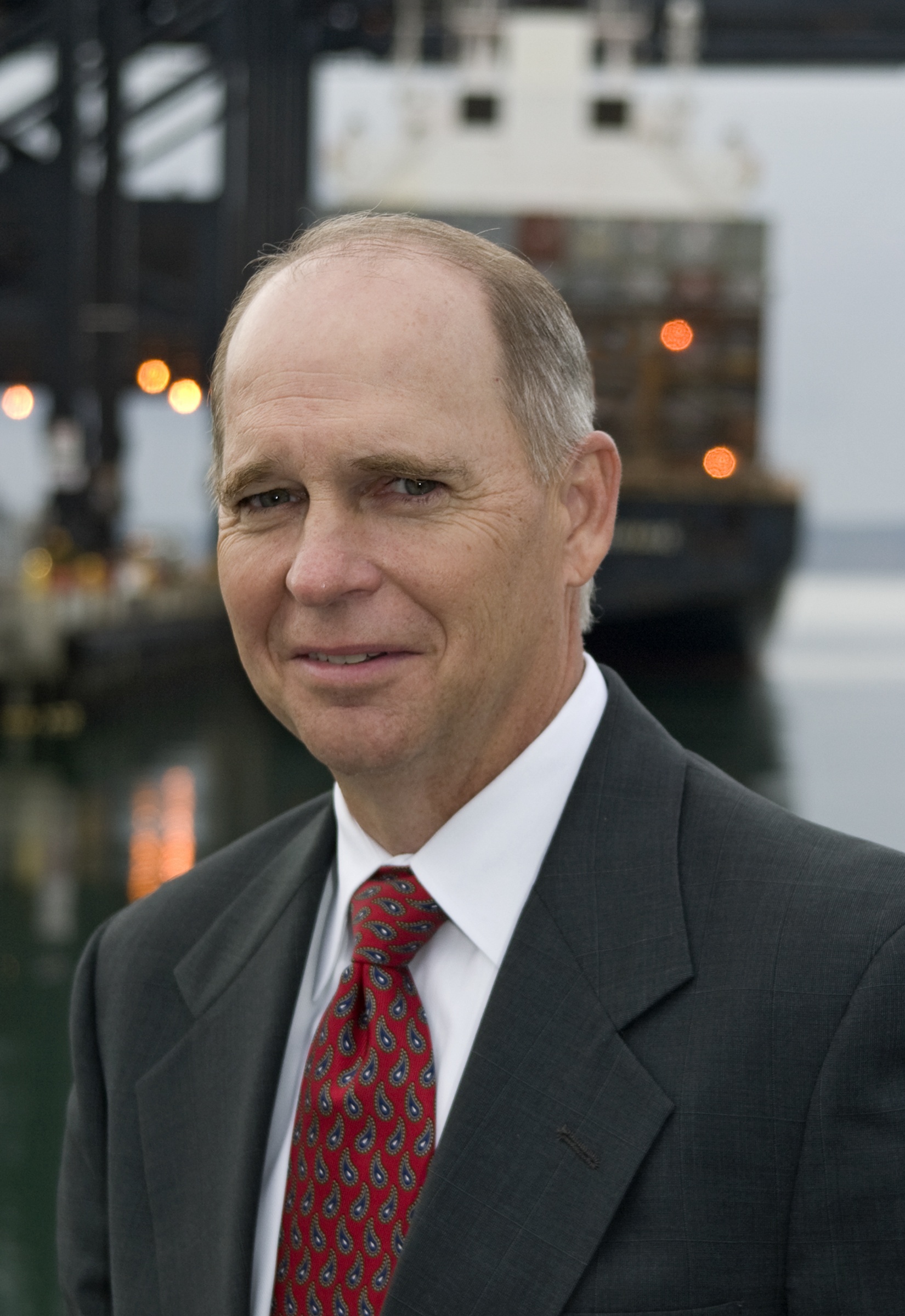 Kurt Nagle has over 30 years of experience in Washington, DC, related to seaports and international trade. Since 1995, Mr. Nagle has served as President and Chief Executive Officer for the American Association of Port Authorities (AAPA). Mr. Nagle began working at AAPA, the alliance of the leading public port authorities throughout the Western Hemisphere, in 1985.
Kurt Nagle has over 30 years of experience in Washington, DC, related to seaports and international trade. Since 1995, Mr. Nagle has served as President and Chief Executive Officer for the American Association of Port Authorities (AAPA). Mr. Nagle began working at AAPA, the alliance of the leading public port authorities throughout the Western Hemisphere, in 1985.
Prior to joining AAPA, Mr. Nagle was Director of International Trade for the National Coal Association and Assistant Secretary for the Coal Exporters Association. Previously, he worked in the Office of International Economic Research at the U.S. Department of Commerce.
Mr. Nagle serves on the Executive Committee of the Propeller Club of the United States and is a former commissioner of PIANC, the International Navigation Congress. He holds a Master’s Degree in Economics from George Mason University.
Ports Are a Major Part of the U.S. Economy
…The activity that goes around seaports accounts for over a quarter of our U.S. economy, the GDP, so it’s an absolutely vital, critical piece of our economy. It accounts for over 23 million jobs and also, importantly, in these kind of tight fiscal times, that activity generates over $320 billion a year in local, state and federal tax revenue that hopefully then can also be utilized to strengthen and rebuild and modernize that infrastructure that allows for that activity.
We Need Better Maintained, More Modern Ports in Order to Compete
Right now we’re not even providing enough resources to the Corps of Engineers to enable them to fully maintain the channels’, as they’re currently authorized, depths and widths. We need to make sure that we’re maintaining the infrastructure that we have, and we as a nation have invested in over the years. Secondly, on the land side we need to make sure that connections into and out of our ports are able to accommodate…that trade that needs to move through our ports to again enable us to be competitive internationally.
Boosting Efficiency and Improving Environmental Performance
We recently updated a survey last year that talks about what our member port authorities and their private sector partners are doing in terms of investing in infrastructure because, certainly, while we think a lot needs to be done at the federal level to complement that investment, the ports and their private-sector partners are investing over $155 billion just over the next five years in their facilities and in infrastructure to address the growing needs, address the new opportunities, new technologies etc. So there’s a huge amount of investment, a lot of new technology that again not only improves our productivity but also the environmental aspects of port operations.
We’re Killing Our Competitiveness and Wasting Investments
When your navigation channels are not even being maintained at the depths and widths—many of them are only being maintained for essentially half of their width—it’s just an absolute waste of federal investments. It’s essentially the equivalent of making an investment in a two-lane highway…and then just maintaining half of it down the middle and letting the rest fall by the wayside and fall into disrepair. We’re not only reducing our competitiveness, reducing efficiency, but we’re in essence wasting past investments in our nation’s infrastructure. At a bare minimum we need to be maintaining the infrastructure that we have and improving it where appropriate; we can’t be letting it run down.
AAPA: Representing Seaports throughout the Western Hemisphere
For our broad membership, a lot of the focus is on sharing of experiences, lessons learned, best practices in terms of port operations and various areas of port management and operation. In addition to that, for our United States members, we focus as the leading advocacy group here in Washington, DC, to highlight the critical role that ports play and to advocate for policies that would allow that positive economic activity around ports to continue to grow.
Download full transcript (PDF): Kurt Nagle on The Infra Blog
Tags: AAPA, American Association of Port Authorities, Kurt Nagle, Port Infrastructure, Ports






 RSS Feed
RSS Feed